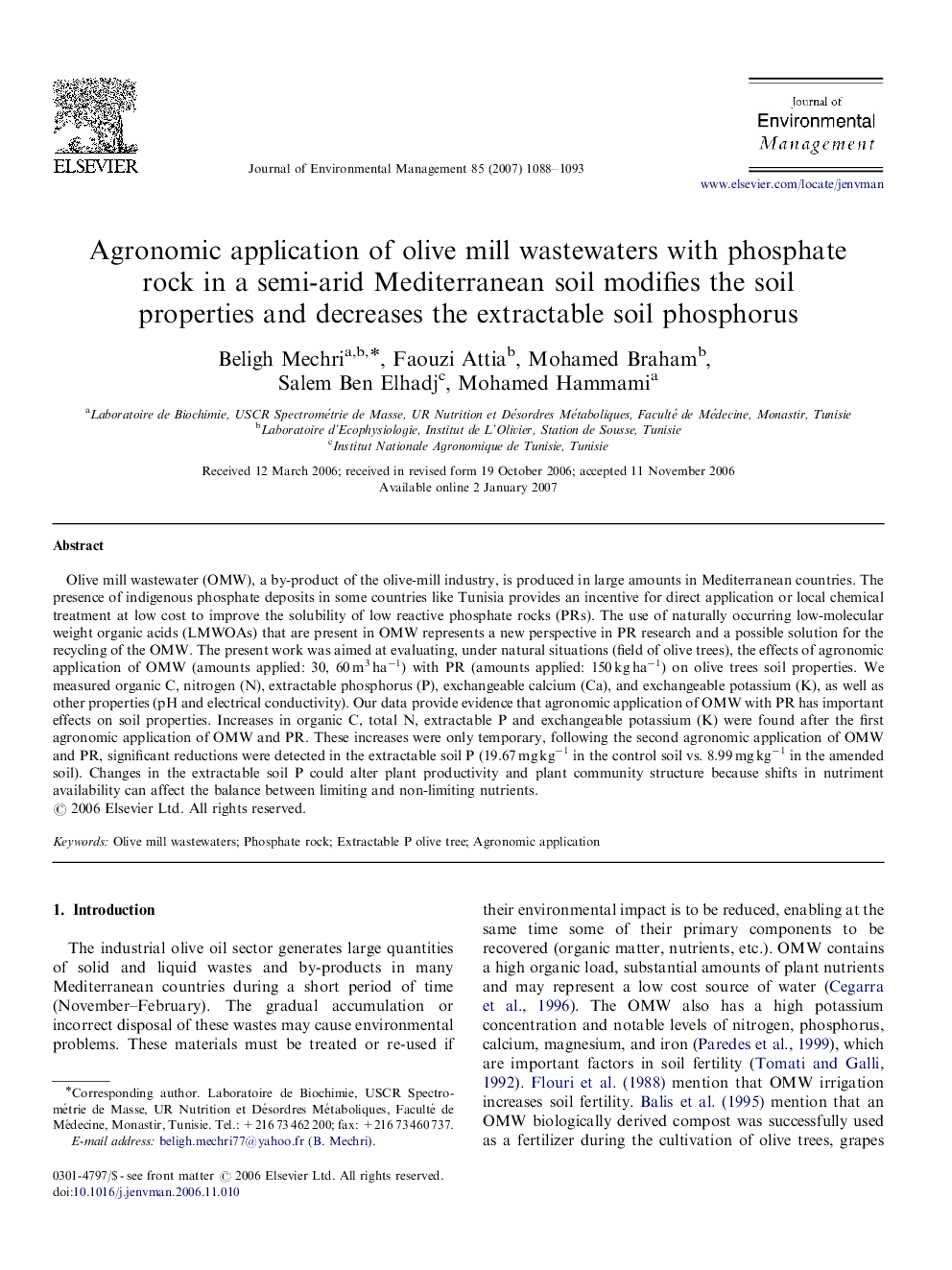| Article ID | Journal | Published Year | Pages | File Type |
|---|---|---|---|---|
| 1058511 | Journal of Environmental Management | 2007 | 6 Pages |
Olive mill wastewater (OMW), a by-product of the olive-mill industry, is produced in large amounts in Mediterranean countries. The presence of indigenous phosphate deposits in some countries like Tunisia provides an incentive for direct application or local chemical treatment at low cost to improve the solubility of low reactive phosphate rocks (PRs). The use of naturally occurring low-molecular weight organic acids (LMWOAs) that are present in OMW represents a new perspective in PR research and a possible solution for the recycling of the OMW. The present work was aimed at evaluating, under natural situations (field of olive trees), the effects of agronomic application of OMW (amounts applied: 30, 60 m3 ha−1) with PR (amounts applied: 150 kg ha−1) on olive trees soil properties. We measured organic C, nitrogen (N), extractable phosphorus (P), exchangeable calcium (Ca), and exchangeable potassium (K), as well as other properties (pH and electrical conductivity). Our data provide evidence that agronomic application of OMW with PR has important effects on soil properties. Increases in organic C, total N, extractable P and exchangeable potassium (K) were found after the first agronomic application of OMW and PR. These increases were only temporary, following the second agronomic application of OMW and PR, significant reductions were detected in the extractable soil P (19.67 mg kg−1 in the control soil vs. 8.99 mg kg−1 in the amended soil). Changes in the extractable soil P could alter plant productivity and plant community structure because shifts in nutriment availability can affect the balance between limiting and non-limiting nutrients.
